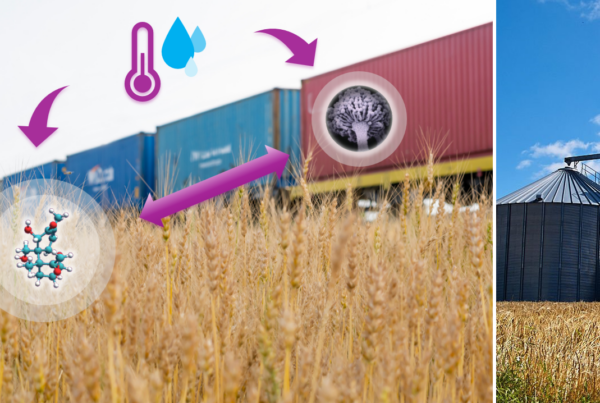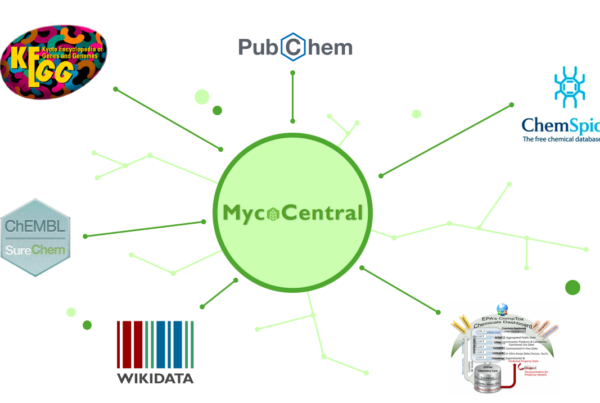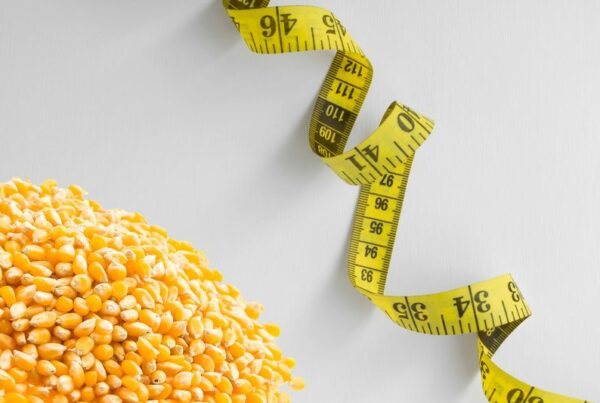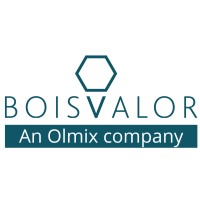Held in Velp, the Netherlands, Olmix Group’s Scientific Seminar on Modern Farming shed light on the characteristics and advantages of algae and the role they will have in the near future as a source of functional protein.
Many renowned veterinarians, nutritionists and other professional experts were recently invited to participate in the scientific seminar on modern farming that Olmix Group hosted at its offices in Velp, the Netherlands. The event addressed not only the main challenges that farmers are facing nowadays and how to solve them, but went deeper into new techniques providing as an alternative strategy to produce in a more efficient and respectful way, specially solutions based on algae and marine resources.
In this context, the first speaker of the seminar, Dr. Ir. Marinus van Krimpen (Researcher in Animal Nutrition at Wageningen University & Research) described the opportunities of seaweeds in animal production by considering this resource to be one of the main key players to feed the world in the near future.
“There are many challenges that the feed industry will have to face in the coming years. First of all, we have to find a resource of high efficiency in order to feed the global population by 2050, since it is going to sharply increase. Secondly, we should focus on improving the health of animals and human beings. And thirdly, we should make sure that we develop responsible farming systems”, the expert said.
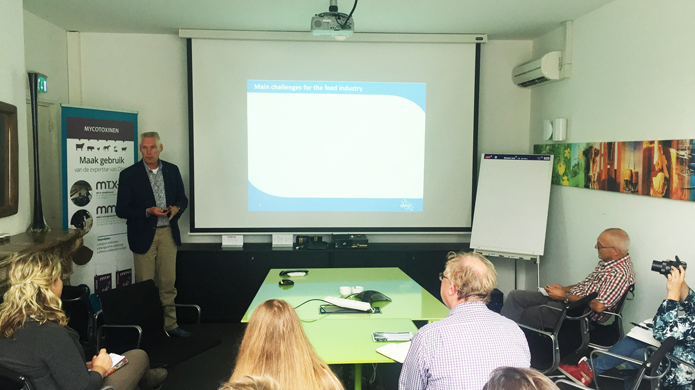
Dr. Ir. Marinus van Krimpen.
Precisely, according to Dr. Van Krimpen, algae are to be of utmost importance when it comes to these matters, due to the high protein demand that is to be expected:
“Soon there will be a need for new protein sources. How can we fulfil this demand? We have to increase protein yield per hectare of current crops and to improve animal protein efficiency. But also we have to focus on new proteins with high yields/ha and the advantage of seaweed is that there is no competition with arable land such as seaweeds or leaf proteins”.
In order to study the potential of algae as a great source of protein, Olmix Group and the Wageningen University have started a 4-year project that has already given some promising results:
- Potentially, seaweeds can contribute to the increasing protein demand.
- Variation in crude protein content allow for selection of protein-rich species.
- In vitro protein digestibility is moderate in intact seaweeds.
- In vivo protein digestibility despite limited data, seem to be moderate in intact seaweeds.
- Extraction of protein from seaweeds might be promising to improve digestibility.
Later on, Mrs Frédérick Bussy, Olmix Group’s Product Specialist, took up the torch to describe the unique properties of algae as a renewable source:
“Algae are rich in many unique components and have very diverse nutritional and biological properties. Marine sulphated polysaccharides possess diverse biological properties such as immunity enhancement that can be used to improve animal health and welfare. Their potential is huge! Olmix Group has developed innovative and unique technologies to extract several active components from macro-algae and develop a full range of algae-based solutions at the service of animals, plants and humans”, she said, just before Mr Freek van Essen, Olmix Group’s Territory Manager in Northern Europe, stepped up on stage to give a conclusion speech on the global vision of the company:
“The world must produce more and better with less to sustainably feed the planet. Algae is one of the main solutions to meet this challenge. Oceans provide all the nutrients we need for vital balance. Algae are a unique renewable source of nutrition and health!”.

Mrs Frédérick Bussy.
